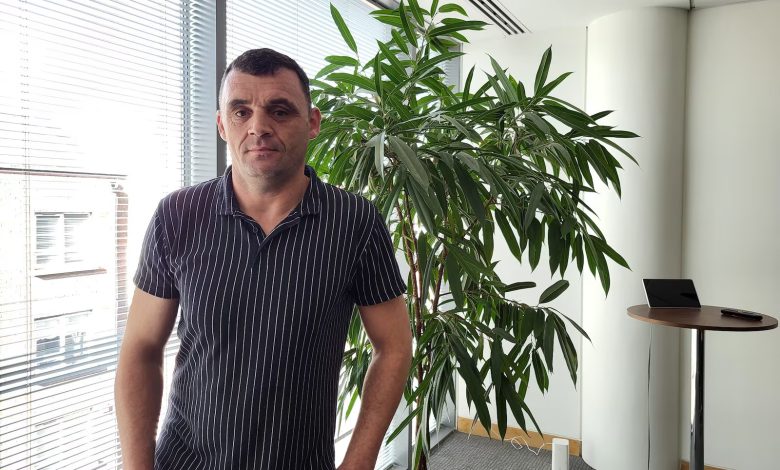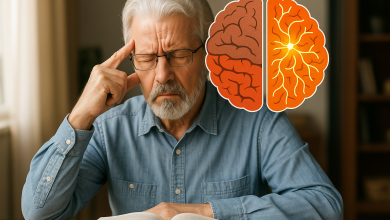A ‘brutal’ reality: For Travellers, mental illness remains a stigma that can lead to spiralling problems

When Michael Francis Ward was initially incarcerated, he was 11 years old. He claimed that because he was a Traveler, he frequently experienced discrimination as a student. He was bullied at school and told he couldn’t play GAA at the neighborhood club.
He claimed that as a result, he became extremely worried about people, education, and life in general. He started hanging out with the “wrong crowd” because he had nowhere to go.
Even as a young man, it wasn’t nice for me to be locked up and placed in a cell. I was agitated. Being confined to a room simply played on my desire to keep moving forward,” he remarked.
“My mental processes began to shift. When the paranoia started, it was from my childhood, from school, and from being imprisoned in a room. You find yourself conversing with yourself. And if you were talking to yourself back then, you were insane or ill.
While incarcerated, the 42-year-old father of six children was given a paranoid schizophrenia diagnosis. But he claimed that the diagnosis “made me worse.”
“That was very awful. Two of my family members passed away while receiving mental health care and had mental health problems. It was terrible to witness what they endured and then be placed in the same situation,” he remarked.
“I was given a mental health diagnosis, but I had no one to support me.” You can put your name down to visit a counselor while incarcerated, but by the time you see a counselor, your sentence has already ended. You can attempt to speak with a prison guard, but they are uninformed and will advise you to see a counselor.
There is an overrepresentation of Traveling people in prisons. Speaking in 2022 before the UN Committee on Human Rights, Irish delegates stated that although Travelers made up 0.7% of the nation’s total population, they made up 10% of the overall prison population and 15% of the female prisoner population.
Since then, things have gotten better, according to an Irish Prison Service official, who stated that as of the end of May 2024, 8% of all inmates are Travelers.
Travelers’ mistrust of the Irish criminal justice system is based on personal and collective experiences of unsatisfactory and occasionally biased treatment at the hands of criminal justice professionals, both as suspects and victims, according to a 2022 University of Limerick report.
According to many who work with travelers, mental health is still a taboo subject, which means that many people who suffer from mental diseases do not receive treatment. This may occasionally result in offenses that land them in jail time.
According to Caroline O’Reilly, an addiction counselor at Exchange House Ireland National Travelers Service, suicide rates among Travelers are high in the real world.
According to her, “generational trauma and mental health issues have been observed over time. In addition, poverty and marginalization make it difficult for people to access services.”
According to O’Reilly, there are circumstances that can go out of control and result in “a lot of paranoia and drug-induced psychosis,” which can occasionally result in jail time, recurrent court appearances, or banning orders.
According to Michael Wolniak, a social worker affiliated with the same organization, the mental health conditions affecting the Traveling population incarcerated are diverse and encompass a wide variety of conditions, from anxiety to depression to more serious and persistent diagnoses.
“I talked to someone who had been brought into prison and had been waiting for help for ages, for months, and who was suicidal and had really bad depression before.” They’re seriously understaffed, which is a major problem,” he stated.
The multidisciplinary team works closely with the mental health issues of individuals in detention, including Travelers, according to an Irish Prison Service official.
Weekly forensic mental health sessions are led by consultant forensic psychiatrists with assistance from non-consultant hospital doctors, community psychiatric nurses, and social workers. These sessions are provided by the HSE’s national forensic mental health service, the Irish Prison Service primary healthcare team, psychological service, and in-reach mental health services, he said.
Representatives stated that dual diagnosis is highly prevalent, especially among Traveler women, as a result of ancestral trauma and discrimination.
According to a research report titled Minority Women Incarcerated: The Vulnerabilities of Traveller Women in the Irish Criminal Justice System, Irish women who travel are 22 times more likely to be imprisoned than women who do not travel. They are more likely to be imprisoned than Traveler men, who are disproportionately represented in jail populations.
According to Ann Marie Sweeney, her addiction and melancholy were the direct causes of her criminal behavior.
When I was nine or ten years old, I overdosed for the first time. I had to go to the hospital after my first two overdoses. More than anything else, I believe it was a cry for assistance. I was always aware that I was imprisoned within. I was quite suspicious. I had zero faith in the outer world. We were rejected by the community right away,” she stated.
Soon after her marriage, she fell prey to an alcohol and drug addiction. Her contacts with the criminal court system primarily started at this point: “It started off with stealing; you had to do it sometimes to survive.” It kept my kids and me alive at times. The majority of my charges were like that.
“I entered prison and I was released. I was incarcerated and I was released,” she continued.
Sweeney claims that mental illness has a “brutal” effect on the Traveling community.
She said, “We have a lot more men and women entering jails and suicides; we also have a lot more people in our younger generation engaging in criminal activity and addiction due to mental health issues that they are unaware of.”
The policy and research manager of Mental Health Reform, Ber Grogan, described the Traveling community as a group of individuals who are “falling through the gaps.”
Here, she claimed, there is still a stigma associated with mental illness. “Stigma is a major problem, and self-stigma is an even bigger problem. A psychosocial disability occurs when mental health issues are severe and persistent.
Another man, Frank*, stated that he was unable to disclose to anyone his early struggles with mental illness since doing so would have jeopardized his chances of getting married.
“I really started to feel gloomy when I was around 16 or 17 years old. If I was sad, or as they put it, “in the loony bin,” no one would give me their daughter to marry as a Traveler, he added.
You wouldn’t get married, so my father and everyone else were really skilled at covering the fact that I was depressed. Additionally, you would spoil your brothers’ marriages.
He claimed that he drank excessively to mask his unhappiness under the alias Frank. Later in life, he committed a violent crime related to a family dispute and was given a 14-year prison sentence. This was where his problems with mental health truly started to show.
“Because I wouldn’t want anyone to hear me, I would be screaming into the pillow. I would suffer mental agony. And I would emerge thereafter, grinning and laughing. Despite my persistent thoughts of suicide, I would keep them to myself.




